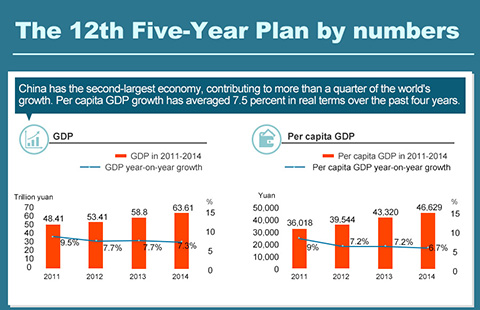ENN Group to sew up LNG import deals by the end of this year
By DU JUAN (China Daily) Updated: 2015-10-29 09:41Private sector ENN Group plans to contribute to China's energy security by ensuring import of up to 2 million metric tons of liquefied natural gas per year.
Ma Shenyuan, vice-president of the group, told China Daily, "ENN will nail certain LNG supply agreements by the end of this year with an expected capacity of up to 2 million metric tons annually as a start, and gradually increase the volume according to market conditions."
ENN is the first Chinese private company authorized by the central government to build and operate an LNG import facility.
Ma said ENN's overseas partners, including LNG suppliers from North America, Australia and Asia, are keen to export clean energy to China. "Abundant supplies and lower international LNG prices have created a buyers' market, which favors our ongoing negotiations."
The central government allowed ENN to build an LNG receiving terminal in Zhoushan, Zhejiang province, earlier this year. China's 11 existing LNG receiving terminals and another five under construction belong to the three major State-owned oil and gas enterprises: Sinopec Group, PetroChina Co and CNOOC Ltd.
The LNG terminal license for ENN was seen as a big step toward the private sector's participation in the energy industry.
"The Zhoushan project has huge significance to both the country and the company," Ma said. "As a private distribution company, we are closer to the downstream market and more flexible on business models. Having more players in the energy market is beneficial for the nation's energy security."
Currently, ENN buys gas and LNG mainly from the national oil companies, including PetroChina, the country's biggest natural gas producer and importer, for distribution.
"We distributed more than 10 billion cubic meters of gas in 2014. The company will continue supply cooperation with the big three oil and gas companies, even after the completion of the Zhoushan LNG receiving terminal," Ma said.
ENN distributes natural gas in 142 cities in China, serving more than 65 million people. It owns 527 gas refueling stations in 105 cities, providing compressed natural gas and LNG to vehicles.
Ma said the company considers use of LNG as a transportation and bunker fuel as a growing trend with huge potential in the industry, even though the global crude oil price decline has made its substitute-natural gas-less attractive in this market.
Li Li, research and strategy director at ICIS Energy, a Shanghai-based energy information consultancy, said investors need to review their previous investment in the LNG businesses because the competitiveness of natural gas is decreasing due to the fall in crude oil prices.
According to ICIS Energy data, China's downstream LNG consumption growth for the first half of this year was 19.2 percent year-on-year, much lower than the upstream imports growth of around 50 percent during the same period.
- Full steam ahead for China's cruise market
- China enters key phase to avoid middle income trap
- China to cap coal consumption
- Alipay to launch payment service in Taiwan
- China approves PPP projects worth $128b in 2 years
- Alibaba Pictures to invest 1b yuan in young filmmakers worldwide
- Glimpses of a new world where smartphones rule
- Graphene is shaping nation's high-tech dreams














